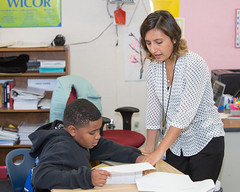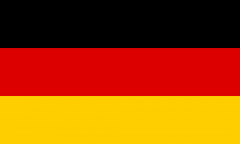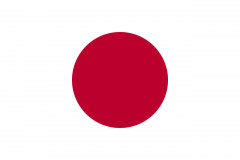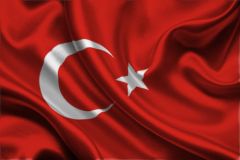![]()
![]()
![]()
Use LEFT and RIGHT arrow keys to navigate between flashcards;
Use UP and DOWN arrow keys to flip the card;
H to show hint;
A reads text to speech;
177 Cards in this Set
- Front
- Back
|
你 |
nǐ |
|
|
好 |
hǎo |
|
|
很 |
hěn |
|
|
也 |
yě |
|
|
呢 |
ne (particle that indicates the previously asked question) |
|
|
力 |
lì (strength) |
|
|
门 |
mén (door) |
|
|
马 |
mǎ (horse) |
|
|
木 |
mù (wood) |
|
|
火 |
huǒ (fire) |
|
|
爸爸 |
bàba |
|
|
妈妈 |
māma |
|
|
他们 |
tāmen (they) |
|
|
都 |
dōu (all / both) |
|
|
忙 |
máng (busy) |
|
|
朋友 |
péngyou |
|
|
哥哥 |
gēge |
|
|
要 |
yào (to want) |
|
|
咖啡 |
kāfēi |
|
|
男 |
nán (male) |
|
|
喝 |
hē |
|
|
姐姐 |
jiějie (elder sister) |
|
|
妹妹 |
mèimei (younger sister) |
|
|
水 |
shuǐ |
|
|
茶 |
chá |
|
|
丁 |
Dīng (nail/and a surname) |
|
|
刀 |

dāo (knife/blade) |
|
|
又 |
yòu (again) |
|
|
大 |
dà (big) |
|
|
口 |
kǒu (mouth) |
|
|
土 |
tǔ (earth) |
|
|
可 |
kě (can,may) |
|
|
那 |
nà (that/this) |
|
|
是 |
shì (to be) |
|
|
谁 |
shéi (who) |
|
|
老师 |

lǎoshī (teacher) |
|
|
哪 |
nǎ (which) |
|
|
国 |
guó (country,nation) |
|
|
人 |
rén (person) |
|
|
中国 |

Zhōngguó |
|
|
您 |
nín (you (formal) ) |
|
|
这 |
zhè (this) |
|
|
外语 |
wàiyǔ (foreign language) |
|
|
医生 |

yīshēng |
|
|
奶奶 |
nǎinai (grandmother on father's side) |
|
|
外婆 |
wàipó (grandma on mother's side) |
|
|
中 |
zhōng (middle)
|
|
|
日 |

rì (sun) |
|
|
矢 |
shǐ (arrow) |
|
|
德国 |

Déguó |
|
|
英国 |

Yīngguó |
|
|
美国 |

Měiguó |
|
|
日本 |

Rìběn |
|
|
土耳其 |

Tǔ'ěrqí |
|
|
加拿大 |
Jiānádà (canada) |
|
|
可以 |
kěyǐ (may) |
|
|
进来 |
jìnlái (to come in) |
|
|
请 |
qǐng (please) |
|
|
记者 |
jìzhě (reporter) |
|
|
请问 |
qǐngwèn (Excuse me, may I ask...?) |
|
|
贵姓 |
guìxìng (What is your honorable surname?) |
|
|
叫 |
jiào (to be called) |
|
|
语言 |
yǔyán (language) |
|
|
学院 |
xuéyuán (institute; college)
|
|
|
的 |
de (of / ~'s possessive particle) |
|
|
学生 |

xuésheng |
|
|
什么 |
shénme (what)
|
|
|
学习 |
xuéxí (to learn ; to study) |
|
|
汉语 |
Hàn yǔ |
|
|
学校 |
xué xiào (school) |
|
|
同学 |
tóng xué (classmate)
|
|
|
大学 |
dà xué (university) |
|
|
翻译 |
fān yì (to translate) |
|
|
喜欢 |
xǐ han (to like) |
|
|
有点 |
yǒu diǎn (a little) |
|
|
累 |
lèi (tired) |
|
|
生词 |
shēng cí (new word/s) |
|
|
颜色 |
yán sè (colour/s) |
|
|
绿色 |
lǜ sè (green) |
|
|
黄色 |
huáng sè (yellow) |
|
|
红色 |
hóng sè (red) |
|
|
蓝色 |
lán sè (blue) |
|
|
紫色 |
zǐ sè (purple) |
|
|
白色 |
bái sè (white) |
|
|
黑色 |
hēi sè (black) |
|
|
小 |
xiǎo (small,little) |
|
|
心 |
xīn (heart) |
|
|
月 |
yuè (moon) |
|
|
手 |
shǒu (hand) |
|
|
鼻子 |
bízi (nose) |
|
|
头发 |
tóufa (hair) |
|
|
耳朵 |
ěrduo (ear) |
|
|
嘴 |
zuǐ (mouth) |
|
|
眼睛 |
yǎnjing (eye) |
|
|
田 |
tián (field) |
|
|
只 |
zhǐ (only / merely / just ) |
|
|
言 |
yán (speech) |
|
|
家 |
jiā (home,family) |
|
|
也许 |
yě xǔ (maybe) |
|
|
吃饭 |
chī fàn (to eat) |
|
|
睡觉 |
shuì jiào (to sleep) |
|
|
起床 |
qǐ chuáng (to get up) |
|
|
做饭 |
zuò fàn (to cook) |
|
|
跑步 |
pǎo bù (to run) |
|
|
作业 |
zuò yè (homework) |
|
|
笔 |
bǐ (pen) |
|
|
餐厅 |
cāntīng (dining room) |
|
|
在 |
zài (at,located) |
|
|
哪儿 |
nǎr (where) |
|
|
宿舍 |
sùshè (dormitory) |
|
|
坐 |
zuò (to sit) |
|
|
知道 |
zhīdào (to know) |
|
|
没关系 |
méi guānxi (it doesn't matter) |
|
|
再 |
zài (again) |
|
|
这儿 |
zhè r (here) |
|
|
不用谢 |
bùyòngxiè (no need to thank) |
|
|
去 |
qù (to go) |
|
|
来 |
lái (to come) |
|
|
晚 |
wǎn (late) |
|
|
了 |
le (past) |
|
|
儿 |
ér (son) |
|
|
子 |
zǐ (son) |
|
|
井 |
jǐng (well) |
|
|
文 |
wén (written language) |
|
|
见 |
jiàn (to see) |
|
|
且 |
qiě (and) |
|
|
游泳 |
yóuyǒng (to swim) |
|
|
昨天 |
zuótiān (yesterday) |
|
|
怎么样 |
zěnmeyàng (how about? how is it? how? ) |
|
|
有意思 |
yǒuyìsi (interesting) |
|
|
今天 |
jīntiān (today) |
|
|
天气 |
tiānqì (weather) |
|
|
太 |
tài (too;exremely) |
|
|
时候 |
shíhou (time;moment) |
|
|
现在 |
xiànzài (now) |
|
|
厕所 |
cèsuǒ (toilet) |
|
|
名字 |
míngzi (name) |
|
|
一 |
yī (one 1) |
|
|
二 |
èr (2) |
|
|
三 |
sān (3) |
|
|
四 |
sì (4) |
|
|
五 |
wǔ (5) |
|
|
六 |
liù (6) |
|
|
七 |
qī (7) |
|
|
八 |
bā (8) |
|
|
九 |
jiǔ (9) |
|
|
十 |
shí (10) |
|
|
伯 |
bǎi (100) or yī bǎi |
|
|
千 |
qiān (1000) |
|
|
跟 |
gēn (to follow closely / to go with / to marry sb (of woman) / with / towards / as (compared to) / from (different from) / and (in addition to) |
|
|
冷 |
lěng (cold) |
|
|
但是 |
dànshì (but;however) HSK2 |
|
|
什么 |
shénme (what) HSK1 |
|
|
明天 |
míngtiān (tomorrow) |
|
|
有 |
yǒu (to have) HSK 1 |
|
|
说 |
shuō (to speak) |
|
|
时间 |
shíjiān (time;period) |
|
|
遍 |
biàn (number of times) |
|
|
打 |
dǎ (to play ; to hit) |
|
|
抱歉 |
bàoqiàn (to be sorry) HSK4 |
|
|
恐怕 |
kǒngpà (to be afraid that ; perhaps) HSK4 |
|
|
行 |
xíng (to be O.K) |
|
|
唱歌 |
chànggē (to sing a song) HSK 2 |
|
|
上课 |
shàngkè (to have lessons) |
|
|
下课 |
xiàkè (class is over) |
|
|
帅 |
shuài (handsome) HSK 4 |
|
|
吃 |
chī (to eat) |
|
|
可爱 |
kě'ài (adorable,cute) |
|
|
想 |
xiǎng (to want politely; to miss feel wistful about the absence of sb or sth) |
|
|
告诉 |
gàosu (to tell) |
|
|
非常 |
fēicháng (very) HSK 2 |
|
|
困 |
kùn (sleepy) HSK4 |
|
|
念 |
niàn (to read) |
|
|
问题 |
wèntí (question) |
|
|
先生 |
Xiānsheng (Mr.) |
|
|
办公室 |
bàngōngshì (office) HSK 3 |
|
|
层 |
céng (floor) HSK 3 |

